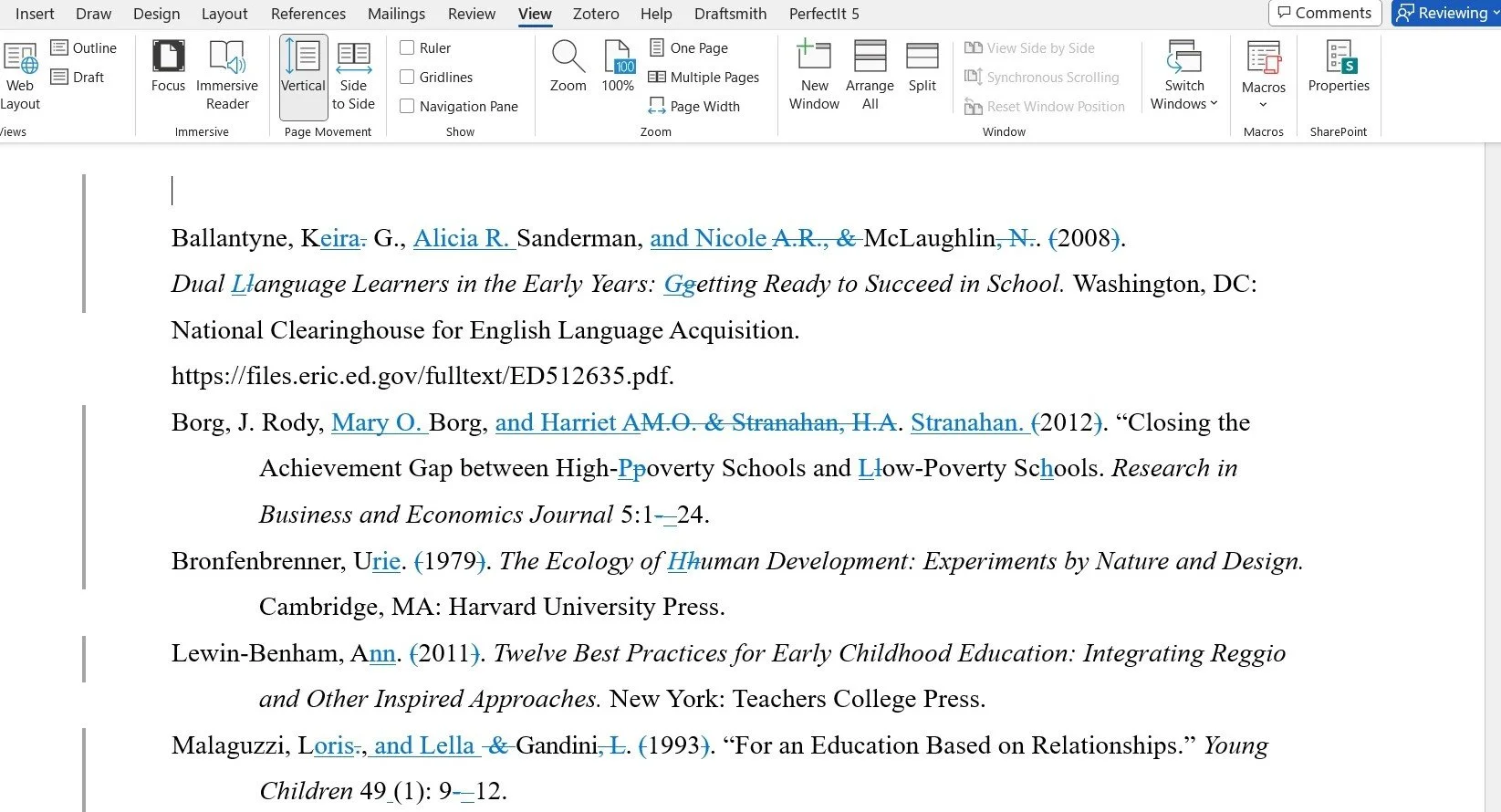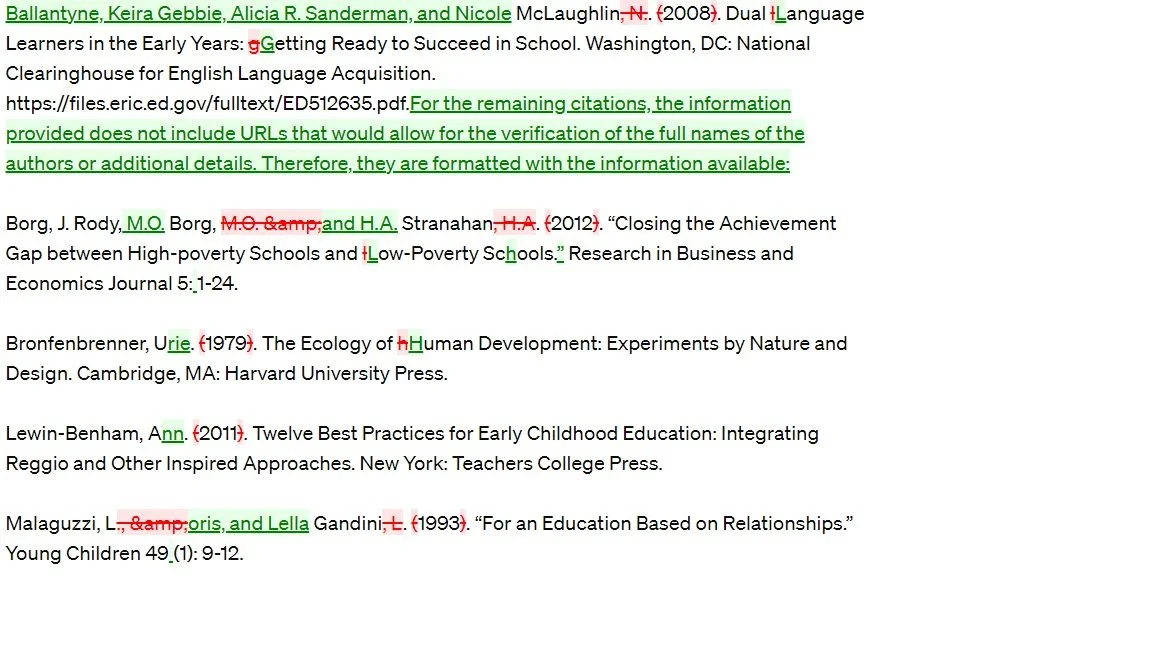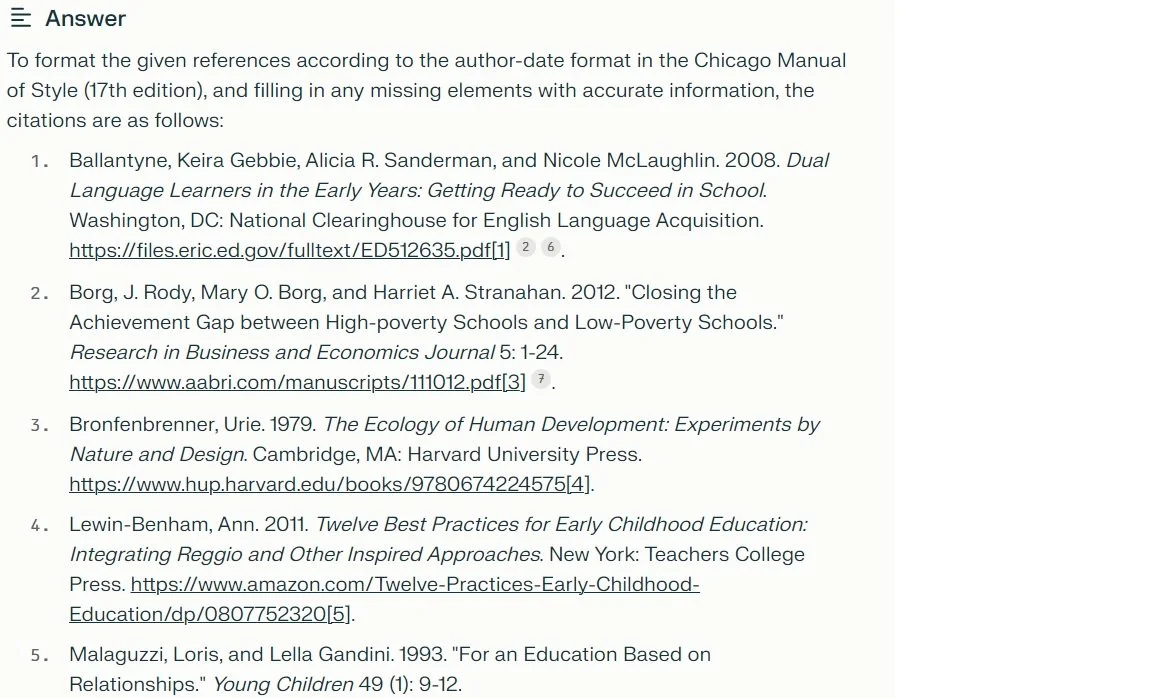AI & References: A New Era
Ever found yourself buried under a mountain of references, each one playing by its own set of rules? What if there were a more efficient way to tackle this, with the help of artificial intelligence (AI)?
The AI Solution to Editorial Challenges
Enter ChatGPT, Perplexity, and their contemporaries in the AI field. These tools promise to alleviate some of the manual burdens by automating the process of reference formatting. But how effective are they, really? I’ve explored this question by putting the latest version of ChatGPT and Perplexity to the test, aiming to find out which of these AI tools can best assist editors in converting references to the desired format, in this case, the Chicago Manual of Style (CMOS).
Consider a typical scenario: You’re handed a document whose references are a mix of APA, Chicago, and perhaps a few creatively interpreted styles. Your task is to unify these into the CMOS format. Traditionally, this would involve manually checking each reference, a process both tedious and time-consuming.
Initially, I tackled this task the old-fashioned way: looking up each source to find authors’ first names and then correcting each reference using Word’s Track Changes. This process, while accurate, was slow (see Figure 1 below).
Figure 1: Original References with Corrections Made by Me
Testing AI: ChatGPT and Perplexity at Work
Curious about a more modern approach, I turned to AI, specifically ChatGPT, with a straightforward prompt to reformat a selection of references according to CMOS standards. (Note that I used the paid version of ChatGPT 4, which costs, as of March 18, 2024, $20 a month.)
Here’s the prompt I used:
Please format these citations following the author-date format in the Chicago Manual of Style (17th edition). Please browse with Bing to fill in any missing elements with accurate information, including the authors’ first names.
Figure 2 (see below) shows what ChatGPT came back with:
Figure 2: Original References with Corrections Made with ChatGPT
In this example, I used the editGPT browser extension with ChatGPT so I could see my changes. ChatGPT’s response, delivered in a mere 30 seconds, was promising but not without its flaws. It struggled with finding some authors’ full names, applying italics, and converting dashes to en dashes.
Seeking a comparison, I then tasked Perplexity with the same job (using the same prompt I gave ChatGPT), curious to see if its performance would differ. (Note that I used the free version of Perplexity for this task.)
Here is what Perplexity gave back to me:
Figure 3: Original References with Corrections Made by Perplexity
Perplexity does not have an add-on browser extension to track changes (like ChatGPT does), so that might be a deal breaker for some editors. Perplexity impressed by retrieving the authors’ full names and even citing its sources. However, it too stumbled on some formatting nuances like the dash conversion.
A Step Toward the Future
The results of this experiment are telling. While neither ChatGPT nor Perplexity perfectly solved the reference formatting challenge, both significantly cut down on the time and effort required. Perplexity, with its ability to cite where it found information, slightly edges out as the more useful tool for this specific task, and both AI tools represent a leap forward in editorial technology.
As AI continues to evolve, its potential to streamline the more mundane aspects of editorial work becomes increasingly evident. By embracing these tools, editors can reallocate their time and expertise to more complex and creative tasks, ultimately elevating the quality of their work and the efficiency of their processes.
If you enjoyed this post, consider signing up for my blog (see the Editing with AI subscriber bar at the bottom of the page). You’ll be notified when the next post is up and of tips and classes I think are useful. I promise to never misuse your information.



